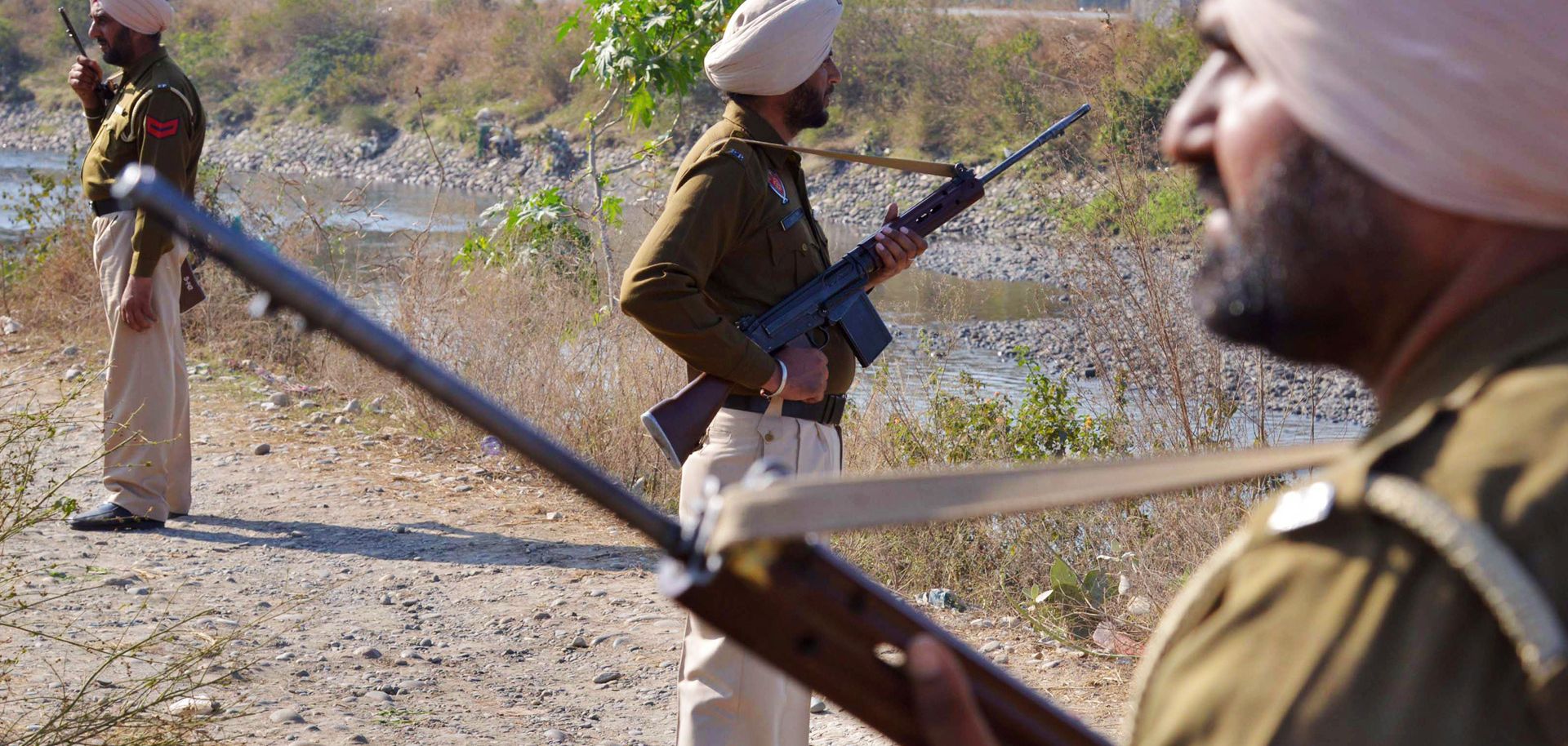ASSESSMENTS
India, Pakistan: This Time, Relations May Withstand Militant Attacks
Jan 16, 2016 | 14:16 GMT

(NARINDER NANU/AFP/Getty Images)
Summary
A pair of attacks threatens to damage ties that India and Pakistan only recently repaired. On Jan. 2, armed militants donning Indian military uniforms stormed an air force base in the Indian city of Pathankot, near the country's border with Pakistan. A second wave of militants then infiltrated the base, ostensibly to distract authorities as the first group targeted high-value assets, including helicopters, missiles and the base's ammunition depot. Fourteen people died in the assaults, including all six militants. Then on Jan. 4, about 922 kilometers (573 miles) away, three militants assaulted the Indian Consulate in the northern Afghan city of Mazar-e-Sharif. A 25-hour gunfight ensued, during which all of the assailants were killed. These seemingly unrelated events appear to be connected by Afzal Guru, a deceased Pakistani militant whose name was mentioned in Pathankot, according to a hostage, and whose name was written in blood on a wall in Mazar-e-Sharif.
In years past, this type of episode would have been followed by statements of denial, denunciations and contempt. But now, New Delhi and Islamabad are exercising restraint, replacing their accusations with calls for cooperation and affirmations of good faith. In light of their turbulent pasts, this restraint suggests that an attempt to substantially shift the bilateral relationship is underway.
Subscribe Now
SubscribeAlready have an account?
